when recording on someone elses jam
Page 1 of 2: 12

Member
Posts: 50
Joined: Aug 5, 2015
Hi all,
just wondering how people on this site do it.
Listen to the template and additions over and over, work out parts or listen once or twice, hit record and damn the torpedoes full speed ahead. I guess this applies more to solos like guitar harp, sax etc
thanks
jeff
just wondering how people on this site do it.
Listen to the template and additions over and over, work out parts or listen once or twice, hit record and damn the torpedoes full speed ahead. I guess this applies more to solos like guitar harp, sax etc
thanks
jeff

Member
Posts: 213
Joined: Mar 7, 2014
I take my time; I'm no one-take wonder.
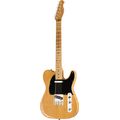
Harley Benton TE-52 NA Vintage Series
Electric Guitar

$145
iThis widget links to Thomann, our affiliate partner. We may receive a commission when you purchase a product there.
Visit Shop
SUPPORTER
Posts: 221
Joined: Jul 16, 2015
All of the above Jeff.
One takes are desired but do not occur frequently for me.
One takes are desired but do not occur frequently for me.

Member
Posts: 20
Joined: Apr 15, 2015
Most of the time I work out parts first...I practice the main rhythm and when I think I can do it already, then hit the record. I desire to do it in one take but when i think I am not satisfied, I delete and record again, and this happens most of the time specially for solos.
SUPPORTER
Posts: 2096
Joined: Sep 27, 2014
I usually start by playing along on the wikiloops website to a track I like, keep it on repeat until I think I got something, then download it and continue with that on cubase. I usually record a few takes until I got what I think is a good one. Usually there might be one or more spots where I am not happy, so I will fix these. But sometimes, just sometimes, when everything is aligned correctly I get lucky and I have a single take that is ok...I do like those :D
Member
Posts: 374
Joined: Mar 25, 2012
For the first try i just jam along and see if i can come up with something. If that seems promising i download the track. The first thing i do is retrofitting a click track. if the original is recorded with click this is quite easy. If not the trick is to create a clicktrack thats a little slower and then delete portions of silence between beats to make it fit.
When that is done i usually transcribe the track to facilitate the work. After transposing and creating my part i practice that for a day or two before making an attempt to record. I generally try to make the recording on a day that hasn't involed too much practice
When that is done i usually transcribe the track to facilitate the work. After transposing and creating my part i practice that for a day or two before making an attempt to record. I generally try to make the recording on a day that hasn't involed too much practice
SUPPORTER
Posts: 347
Joined: Jul 26, 2012
I listen to the track many times to memorize it. After that I simply play. Most of the times it is a one shot guided by inspiration.
Member
Posts: 111
Joined: Jul 11, 2015
The trick is always to keep the inspiration and energy of a first take with the intelligence and skill from analyzing and practicing a track. I generally dont like first takes but I do want the enthusiasm and energy.
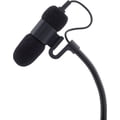
the t.bone Ovid System CC 100
Condenser Clip Microphone for Ovid System

$45
iThis widget links to Thomann, our affiliate partner. We may receive a commission when you purchase a product there.
Visit Shop

Member
Posts: 990
Joined: Oct 16, 2011
I take the track listen to it and then record until I like what I hear if it sounds good to me I hope others feel the same way.

Member
Posts: 282
Joined: Aug 19, 2013
Hope you don't mind my 2 cents because there are not many adds from me. You need the skill to hear what is missing. Hank Linderman called it "the house of cards". A add is something you are not allowed to take away once it is integrated. I really like Wikiloops because people with supplement skills build up solid houses of music.
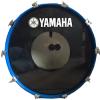
Member
Posts: 522
Joined: Feb 27, 2015
I'm lazy (and time poor most). I kind of a do a hybrid of what people have said above but it depends very much on the track. 95% of the time, the track is jammed - easy with a blues or rock track in particular.
I download the track, call up my recording template (it's a pain manually mapping all my drum mics otherwise!), set the tempo and get the track lined up in Reaper (most times it does line up from bar 1 but not always). From there, I listen to it through to check for any weird turnarounds or problem areas. I also make a mental note of any specific phrases I can map to drums fills - I'm always listening to the track for anywhere where I can join in the dominating phrasing of the tune. It's the key to getting drums to belong to a song for me. If the track is relatively simple, structurally, I just get stuck in and jam it, watching the waveform in Reaper for obvious dynamic or section changes as I play. Many phrasing opportunities are repetitive and easy to work out where they happen.
Then there's tracks which require more effort because they don't have a consistent or obvious verse-chorus-bridge-middle 8 type of structure. If these changes aren't obvious from the waveform, as is common with heavily compressed distorted guitars - for example Akethesnaker's heavily gain maximised templates are almost impossible to read. I listen through the track dropping differently coloured markers where the changes are - the colours map to the type of change so all chorus markers, for example, are orange. These will just say simple things like 'chorus' or 'build' or 'stop' or 'double-time'. Simple visual guides to the structure. It doesn't normally tell me what to play, just where changes are.
From there, I jam the track, 'sight reading' Reaper if you will.
Then there's some which require some proper thought and planning. Many of OliVBee's templates fall into this category, as do some of Marcey's and Kennyadry's, for example. These are the templates where bashing through a backbeat just simply won't do and often the section turnarounds aren't in obvious places. With these templates I often have to compose some patterns from scratch and this takes time because I have to rehearse these new patterns until I'm satisfied they're fluid. If it's especially complex, I record the track in sections as a last resort. I like to do everything in one take but sometimes it's just not possible to remember all of the track's complexities, so I record from the beginning until I make a mistake. Then carry on from the nearest convenient punch-in point before I made the error.
Ultimately, I rely on my intuition and especially musical experience a lot. This is what helps me gets songs recorded from scratch in well under an hour, even more complex ones. I've spent a lot of my musical career jamming and you soon learn how to get into the mindset and style of a piece of music.
And I've said this on several forum posts in the past: I operate a 'three take' rule. If I haven't got the track right within three attempts, I leave it and come back to it after a break. This helps the recording be energetic and fresh.
I am brutal with my performance standards (and I often fall short of them) but I always try to temper that with my time constraints and how much I'll let slip before the tune is unacceptable to me. Ultimately, I'd love to treat every loop I add to like a proper worked-through session but I simply don't have the time and I'd be uploading one track a week at best if I did!
You'll also notice it's almost impossible for me to type a short forum post!
I download the track, call up my recording template (it's a pain manually mapping all my drum mics otherwise!), set the tempo and get the track lined up in Reaper (most times it does line up from bar 1 but not always). From there, I listen to it through to check for any weird turnarounds or problem areas. I also make a mental note of any specific phrases I can map to drums fills - I'm always listening to the track for anywhere where I can join in the dominating phrasing of the tune. It's the key to getting drums to belong to a song for me. If the track is relatively simple, structurally, I just get stuck in and jam it, watching the waveform in Reaper for obvious dynamic or section changes as I play. Many phrasing opportunities are repetitive and easy to work out where they happen.
Then there's tracks which require more effort because they don't have a consistent or obvious verse-chorus-bridge-middle 8 type of structure. If these changes aren't obvious from the waveform, as is common with heavily compressed distorted guitars - for example Akethesnaker's heavily gain maximised templates are almost impossible to read. I listen through the track dropping differently coloured markers where the changes are - the colours map to the type of change so all chorus markers, for example, are orange. These will just say simple things like 'chorus' or 'build' or 'stop' or 'double-time'. Simple visual guides to the structure. It doesn't normally tell me what to play, just where changes are.
From there, I jam the track, 'sight reading' Reaper if you will.
Then there's some which require some proper thought and planning. Many of OliVBee's templates fall into this category, as do some of Marcey's and Kennyadry's, for example. These are the templates where bashing through a backbeat just simply won't do and often the section turnarounds aren't in obvious places. With these templates I often have to compose some patterns from scratch and this takes time because I have to rehearse these new patterns until I'm satisfied they're fluid. If it's especially complex, I record the track in sections as a last resort. I like to do everything in one take but sometimes it's just not possible to remember all of the track's complexities, so I record from the beginning until I make a mistake. Then carry on from the nearest convenient punch-in point before I made the error.
Ultimately, I rely on my intuition and especially musical experience a lot. This is what helps me gets songs recorded from scratch in well under an hour, even more complex ones. I've spent a lot of my musical career jamming and you soon learn how to get into the mindset and style of a piece of music.
And I've said this on several forum posts in the past: I operate a 'three take' rule. If I haven't got the track right within three attempts, I leave it and come back to it after a break. This helps the recording be energetic and fresh.
I am brutal with my performance standards (and I often fall short of them) but I always try to temper that with my time constraints and how much I'll let slip before the tune is unacceptable to me. Ultimately, I'd love to treat every loop I add to like a proper worked-through session but I simply don't have the time and I'd be uploading one track a week at best if I did!
You'll also notice it's almost impossible for me to type a short forum post!

Member
Posts: 16
Joined: Aug 31, 2015
With me, it depends on how much time I have. If I have an ample amount of time, I'll listen to the track to commit it to memory, then do as many takes as it takes to get it right. If I'm pressed for time, and the song is fairly easy, I'll just damn the torpedo's and plow through one track, and however it turns out, it turns out.

Harley Benton TE-52 NA Vintage Series
Electric Guitar

$145
iThis widget links to Thomann, our affiliate partner. We may receive a commission when you purchase a product there.
Visit Shop

Member
Posts: 77
Joined: Mar 22, 2014
Definitely true that some come easier than others - like those mentioned before are complex arrangements and take a lot of thought - sometimes too much for me to handle :) It is worth it to take the time if you have it - it makes you a better, more versatile player. I find as a bass player that styles of music that have unfamiliar rhythmic patterns are the most challenging to me. If you give me classic rock or R&B style I can be more on auto-pilot, but with reggae or bossa nova I have to really practice it - which is good it helps me improve - but I don't always have the time or patience for that unfortunately.
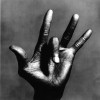
Member
Posts: 3
Joined: Dec 2, 2013
I record every take, even when I'm working out parts. I'm not afraid to cut and paste parts together before I post a remix. I use Audacity, and often the track I upload is several sometimes as many as 8) tracks cut up taking the best parts from each take.

Member
Posts: 45
Joined: Dec 3, 2014
I listen to the piece of music, if i think i can add something that has a fit, i download it.
- This sometimes happens before i even heard the entire piece! so sometimes i get some unexpected challenges when im fiddling around, but i think it's nice.
Mainly, i have to be very picky about which tunes i use, since i mainly use a DAW and vsts, if it's not rock-solid on time, it will screw over my DAW abit. so.. sadly, there's some tracks where it's just too human for the drum machine =/.
usually, i look out for the song structure at first, and then make a bassdrum + snare pattern that fits well over the verse, then i copy + paste it to the next verse(s). same for chorus, breaks, bridges, outro, intro and so on.
then i add the cymbals, toms what FX for what i like.
Then i change up parts, like Verse 1 and 2 so there's different hits here and there to make it sound abit more exciting!
As for guitar, i find some heavy hitting metal drums, jam the hell out of them... and then proceed to not upload anything, because im either not happy with my work or the recording quality =(
i generally use a lot of time on my drums or guitars, (guitars sometimes takes days for me) and drums, like 3 - 5 hours.
- This sometimes happens before i even heard the entire piece! so sometimes i get some unexpected challenges when im fiddling around, but i think it's nice.
Mainly, i have to be very picky about which tunes i use, since i mainly use a DAW and vsts, if it's not rock-solid on time, it will screw over my DAW abit. so.. sadly, there's some tracks where it's just too human for the drum machine =/.
usually, i look out for the song structure at first, and then make a bassdrum + snare pattern that fits well over the verse, then i copy + paste it to the next verse(s). same for chorus, breaks, bridges, outro, intro and so on.
then i add the cymbals, toms what FX for what i like.
Then i change up parts, like Verse 1 and 2 so there's different hits here and there to make it sound abit more exciting!
As for guitar, i find some heavy hitting metal drums, jam the hell out of them... and then proceed to not upload anything, because im either not happy with my work or the recording quality =(
i generally use a lot of time on my drums or guitars, (guitars sometimes takes days for me) and drums, like 3 - 5 hours.

Member
Posts: 1
Joined: Mar 19, 2014
after 10 secs i know if i add some bass on the track or not. i put the track in my DAW and press record. maybe here and there some overdubs.
most of the times i'm nott fully satisfied with my adds, but i have to release them fast as i can. don't know why.
most of the times i'm nott fully satisfied with my adds, but i have to release them fast as i can. don't know why.
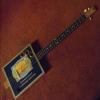
Administrator
Posts: 287
Joined: Jan 20, 2014
I usually play through a track once, and then do a few takes. I may mix and match the final mix between the takes if a solo or such come out better in one but the basics of another track are more solid, but more often than not it is either the first or the last take that ends up being the final version. Occasionally I may delete a few wrong notes, or those that run too much into another instrument's solo.
Member
Posts: 7
Joined: Mar 23, 2012
In the past I've just done one take.... you get what you get and many times it's terrible. This year I've decided to take my time and only put up stuff that sounds good. In the past I've been rushed, having 3 family members living with us and not knowing if one of them would come bursting into my studio while I was recording and ruining the take. It's like night and day when it comes to quality, if I take my time compared to rushing through it.
I'd really like to go back and delete about 70% of my posts because they are of such crappy quality.
I'd really like to go back and delete about 70% of my posts because they are of such crappy quality.

the t.bone Ovid System CC 100
Condenser Clip Microphone for Ovid System

$45
iThis widget links to Thomann, our affiliate partner. We may receive a commission when you purchase a product there.
Visit Shop
SUPPORTER
Posts: 127
Joined: Jul 23, 2013
As I usually I spend on bass, when I hear a good jam in the first compase I was trapped and start to hear a bassline possible in my head, then I play online to see the level of complexity or satisfaction of the line in a first intention. Then I downloaded the jam and begin to practice it several times until I learn memory guide me in the waveform display changes groove and beat, lately if I can not get from hearing the line I apply the chordino pluggin of audacity and end of see the basic chords.
I made the recording of sample and bass tone including the volume of mixture, and finally then I spend a good time to edit the sound of the bass track if a note I do not like or is too confusing, I apply a little compression or sometimes reverb and compact all audio will check up after hearing levels of all tracks of the jam
On bass I have sometimes four stages to tweaking the equalizer to my taste (in mixer, amplifier-box DI, pedalboard and electronics own bass), me time consuming but against nearly all jams them I can add a bass track
I am a "mixer musician man" lately but I enjoy....
I made the recording of sample and bass tone including the volume of mixture, and finally then I spend a good time to edit the sound of the bass track if a note I do not like or is too confusing, I apply a little compression or sometimes reverb and compact all audio will check up after hearing levels of all tracks of the jam
On bass I have sometimes four stages to tweaking the equalizer to my taste (in mixer, amplifier-box DI, pedalboard and electronics own bass), me time consuming but against nearly all jams them I can add a bass track
I am a "mixer musician man" lately but I enjoy....

SUPPORTER
Posts: 541
Joined: Nov 25, 2013
I'm primarily a jammer. I spent some years in a backing band for "open mike nights" where you have to think on your feet and rely on instincts to fit. Backing makes you listen to structure and harmony so that you can anticipate what's coming.
Lots of music here on wikiloops is far more complex and creative, but often one can still get the gist of what's happening. Time for playing is always difficult for me, so like a few others, I record everything and often get lucky with the first play through. If not nailed by the third time I don't usually take it any further. Cut and past can make up for minor problems. Takes a very special track for me to spend a lot more time.
I have great admiration for those who work out parts and especially for those who compose templates. Who knows, if I ever stop working I may even take time add something worthwhile?
Lots of music here on wikiloops is far more complex and creative, but often one can still get the gist of what's happening. Time for playing is always difficult for me, so like a few others, I record everything and often get lucky with the first play through. If not nailed by the third time I don't usually take it any further. Cut and past can make up for minor problems. Takes a very special track for me to spend a lot more time.
I have great admiration for those who work out parts and especially for those who compose templates. Who knows, if I ever stop working I may even take time add something worthwhile?
Page 1 of 2: 12
wikiloops online jamsessions are brought to you with friendly
support by:
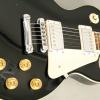
I love this place!! its all about the music&supporting eachother nothing else!! :)
frenzie